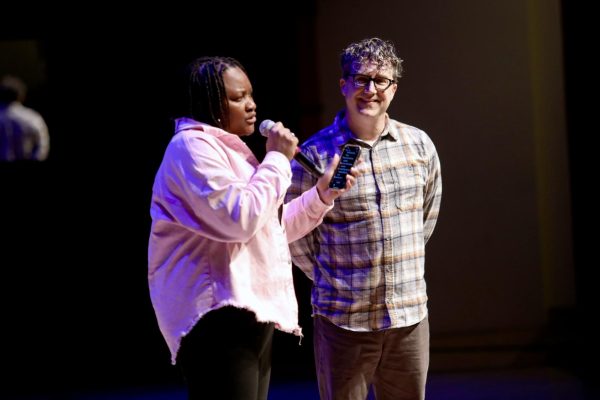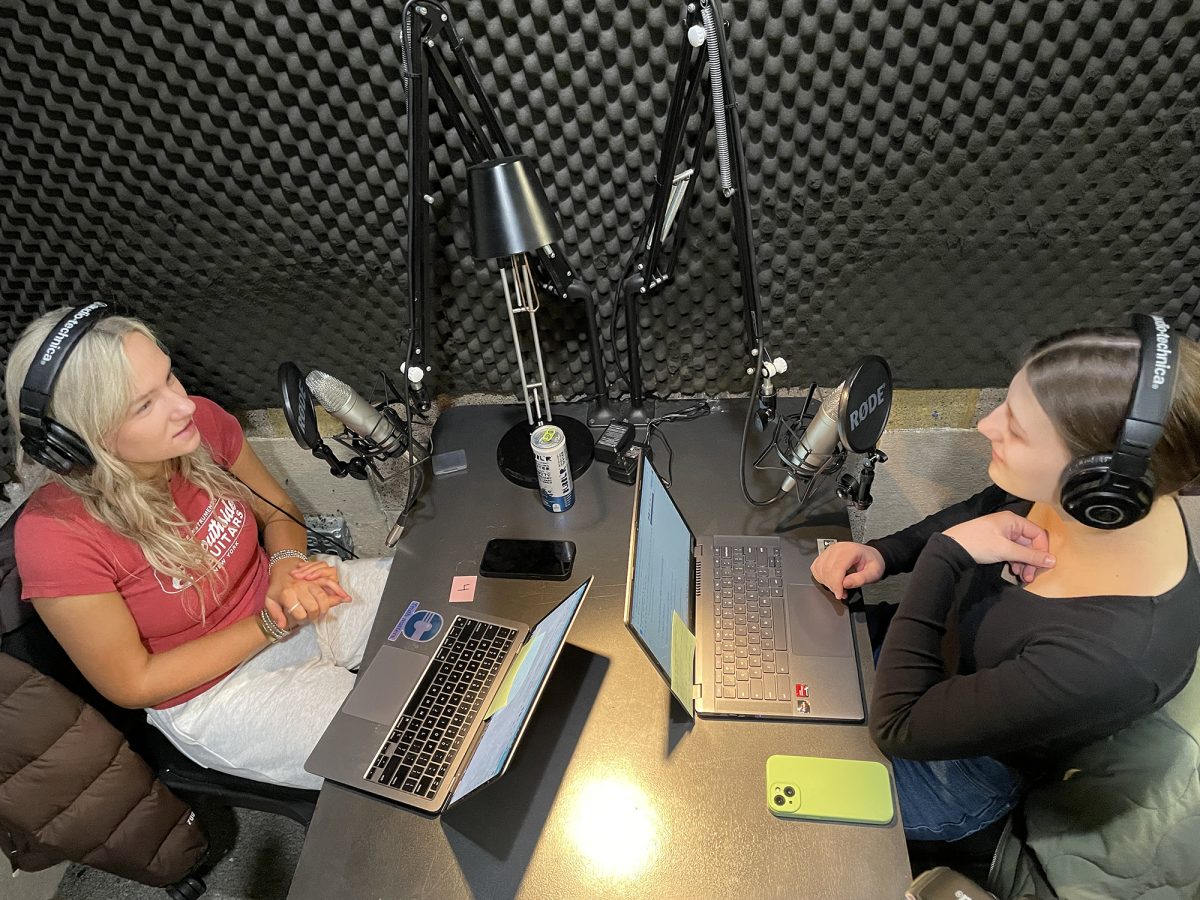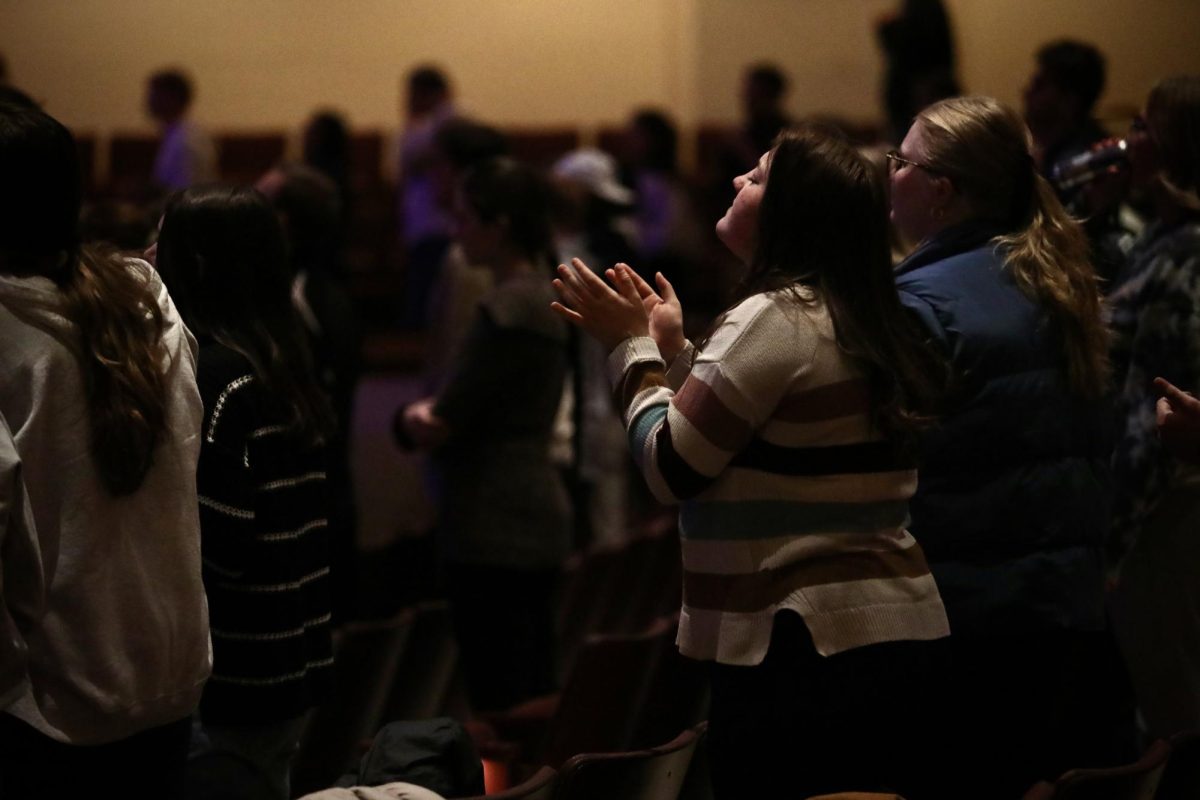Grace Johnson opened her Bible to 1 Timothy 2:12.
“I do not permit a woman to teach or to assume authority over a man; she must be quiet.”
After taking a ministry class at Wheaton College, Johnson couldn’t see herself in any other profession. But when people told her that they couldn’t support her ordination because of her gender and told her to read 1 Timothy 2:12, she feared that the only thing in her life — preaching — wasn’t fit for her.
Since transferring to Bethel, Johnson is sure ministry is where God called her to be. While touring Bethel, Assistant Professor of Missional Ministries Erik Leafblad told her that he and the rest of the Department of Biblical and Theological Studies support women in ministry. Since becoming a student, she’s found both men and women who use their privilege to lift her up, helping “undo her trauma.”
“At the end of the day, like, it’s me and God,” Johnson said. “And I’m not going to let a mere mortal come between that divine relationship and try to point out inconsistencies.”
As a junior missional ministries and BTS major, Johnson recognizes that the church is losing social capital. Though many people are concerned about emptier pews on Sunday mornings, Johnson can see this as a blessing.
Through the dwindling church attendance and talk online about religious trauma and church hurt, young adults are becoming more intentional about seeking Jesus, finding community and asking tough questions about their faith.
Johnson has seen a common theme come up in conversations with her peers: the radicalness of Jesus. He traveled with three women, one of them a former prostitute. He said things like “love your enemies” and “the last will be the first, and the first will be the last.”
She wonders where Jesus would be if he came back today. Who would he be hanging out with?
These questions are ones a lot of other young adults are asking and wrestling with.
Senior missional ministries and BTS student Johanna Johnson works in youth ministry and sees these questions firsthand.
“It’s really hard to remember the faithfulness of God when you’re looking at moments of death in students’ lives,” Johanna said. “And I think sometimes the answer is, ‘Well, God maybe isn’t in there right now.’”
She wonders about common contemporary issues that are being discussed in the church today. What does faith look like in the LGBTQ+ community? How can she advocate for women stepping into pastoral and leadership roles? She sees Christians around her hurting and wrestling with a God who is present within all of these debates.
—
According to Campus Pastor Matt Runion, young adults are less interested in theology and more interested in how Christianity can positively impact the world. Growing up in a primarily post-Christian culture, young adults are holding onto a certain narrative regarding their faith: hope.
United Worship vocalist Ally Stackhouse feels the presence of the Holy Spirit in moments of surrender, like when the song “Agnus Dei (Lamb of God)” plays.
“Everyone has their hands in the air, because when you have a God so powerful, brilliant and amazing as ours, how can you physically show that?” Stackhouse said. “It’s almost like you just don’t know what to do with yourself because you are so in awe of his power.”
Runion sees that instead of finding intellectual arguments supporting the truth of Christianity or Jesus’s claims, Gen-Z is looking for the truth of God by the way they live their lives, perhaps by leading a Bible study or worship.
Stackhouse noticed that of the four years she’s been involved in worship services, this year has had the biggest increase in attendance.
She believes the desire of involvement has been something God has put on people’s hearts.

According to the Christian Formation office, Chapel — a 50-minute service put on every Monday and Friday — had a 45% increase in the fall semester, and attendance has stayed consistent throughout the year.
However, Runion also notices that spiritual formation is starting to look different throughout Gen-Z. Instead of a traditional “worship and word” setting, there’s an interest in personal spiritual practice such as methods of prayer, meditation on Scripture and Sabbath. But due to the COVID-19 pandemic, many young adults are eager to get involved in more experiences and engage in Christian fellowship — something they missed out on when the pandemic hit.
They want experiences and relationships that are different from what they’re used to — diversity, something that Gen-Z values differently than older generations, which affects the way young adults are pursuing Christ.
To Runion, the idea of young adults sitting at the same table as someone who’s different from them is exciting. Due to the experience Gen-Z has had with real pain from scandals in the church, chaos, disappointment and thwarted developmental markers, he thinks they have a lot to offer and has hope that they can mold the church in Jesus’s name.
“I hope they can weather the storm they are in and maintain a faith that is real for them,” Runion said.

























